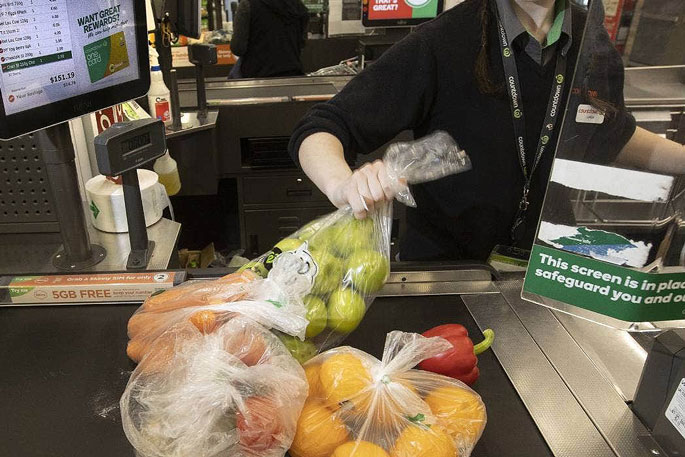A lot changed over the weekend. Not only did the fuel excise tax cut come to an end on July 1, but a raft of other changes took effect, some of which you might feel in your wallet.
End of fuel excise tax cut
This was the most obvious one and it caused a rush at the pumps, as the 25c tax cut and 4c worth of GST was reintroduced to petrol prices at midnight on June 30.
These increases appear to have been passed on immediately.
At a Caltex in Auckland on Newton Rd in central Auckland, regular 91 increased from $2.39 per litre on Friday to $2.67 per litre on Saturday – a 28c per litre increase.
The 36 per cent road user charges discount was also removed.
Public transport back to full price
While fuel and road user charges were discounted, so was public transport.
But half-price fares came to an end on Saturday for those aged over 25.
SuperGold cardholders and those with Community Services Cards can still qualify for a discount.
Prescription charges gone
On Saturday, the $5 prescription fee was scrapped.
It was announced as part of the Government's 2023 Budget and is set to save about 3 million people a year money, and in particular 770,000 people aged over 65.
It will make most prescriptions in New Zealand free.
The scheme will cost $618.6 million over four years.
The Pharmacy Guild of New Zealand welcomed the government's removal of the $5 prescription charge. Chief executive Andrew Gaudin said removing it would ensure that all New Zealanders, regardless of where they lived, could access medicines without having to worry about cost.
Parental leave and child support changes
Parental leave payments increased by 7.7 per cent to reflect the rise in the country's average wage.
Eligible parents will have their parental leave payment increase from $661.12 per week to $712.17 per week, before tax.
A new law that enables sole parents on a benefit to receive child support payments also came into effect on July 1.
Under the Child Support (Pass On) Acts Amendment Act, child support collected by Inland Revenue will be passed on directly to people on a sole parent rate of main benefit. The first payments will be passed on from August 22.
Plastic produce bags gone
The single-use produce bags we've been using to put our fruit and veges in at the supermarket are now banned.
Instead, paper bags are on offer at some supermarkets but shoppers are being encouraged to bring their own reusable ones.
Plastic bowls, cutlery, straws and produce labels are also banned.
Clean car discount changed
Some of the rebates and fees for the Clean Car Discount have changed.
For new vehicles, the maximum rebate decreased, and the maximum fee increased.
The threshold at which vehicles will be subject to fees also reduces from 192 grams of CO2 per kilometre to 150g.
A special rebate for new and used low-emission disability vehicles was also introduced.
Alcohol tax up
Alcohol excise rates, which apply to domestically produced alcohol as well as duty on imported beer, wine and spirits increased by 6.6%.
This means half the price of a 12-pack of beer is now tax.
Working holiday visas extended
Young Brits will be able to stay and work longer in New Zealand, thanks to the extension of the UK working holiday visa.
The eligible age has been increased to 35 and the length of stay and work extended to three years.
Young New Zealanders are also able to stay and work for an extra year in the UK, and can depart later for their OE.
Mail prices up
The cost to send a letter or parcel is now higher as NZ Post struggles to maintain its postal services due to low volume.
Standard mail letter prices across New Zealand will increased by 30c, bulk mail customers received a price increase of about 30% and the price of sending a parcel overseas increased by three per cent.
Australian citizenship boost
New Zealand citizens living in Australia for more than four years can now apply directly for Australian citizenship, rather than getting a permanent visa first.



0 comments
Leave a Comment
You must be logged in to make a comment.